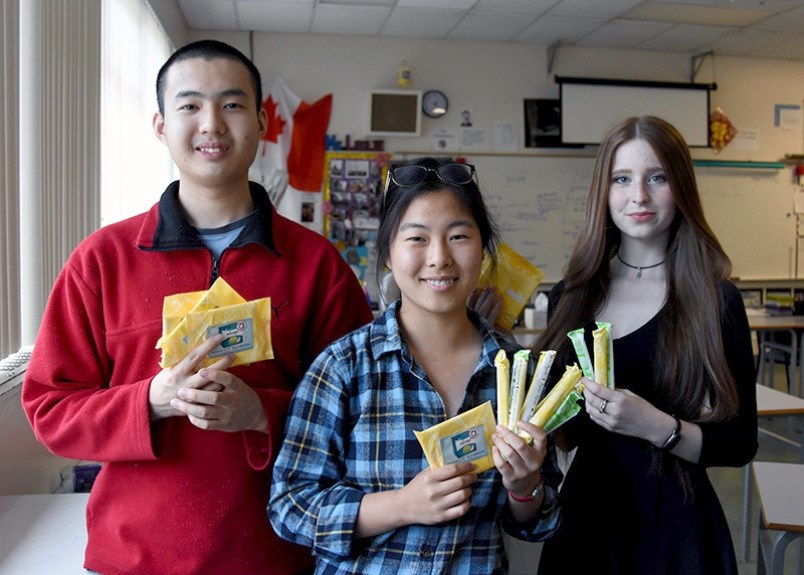Free menstrual products could be available in all washrooms in Coquitlam park, pool and civic facilities by next year and a couple of Dr. Charles Best secondary school grads may be the reason why.
This week the city’s council in committee endorsed a full roll-out of the menstrual products in civic facilities program after a successful four-month pilot which saw free pads and tampons made available in 21 dispensers in parks and rec centres.
That’s good news say the students who brought the issue to council’s attention last year.
“I’m very overjoyed with the positive response that people gave to the pilot, but I also find it really good that even though you might be a student in high school you might be able to make a difference in people’s lives,” said Ellen Mee, who along with Jim Liu and Dajeong Kim successfully lobbied the city of Coquitlam to launch the pilot.
The students were in Megan Leslie’s Social Justice 12 program at the time and argued that the free products were necessary to ensure women’s full participation in work and community life.
Jim Liu, who spoke at the initial council meeting, told The Tri-City News it was a collective response from the school, his teacher, city staff and council that got the pilot going.
“The world is full of interesting situations and problems; bringing awareness to some topic is one thing but putting that into action is very important, too” Liu said.
Now it seems the community is behind the initiative with surveys showing a positive response to the availability of these products for free in women’s washrooms.
Many commented on how useful it was, and how they were glad the service was available, according to a staff report, and while about 2% of the products were wasted, (mostly pads and tampons left on the floor in their wrapping), most said they valued the service.
The next step is to find funds in the 2021 budget to pay for it.
Staff predict it could cost about $35,000 to place dispensers in 25 more civic facilities, and about $25,000 annually.



